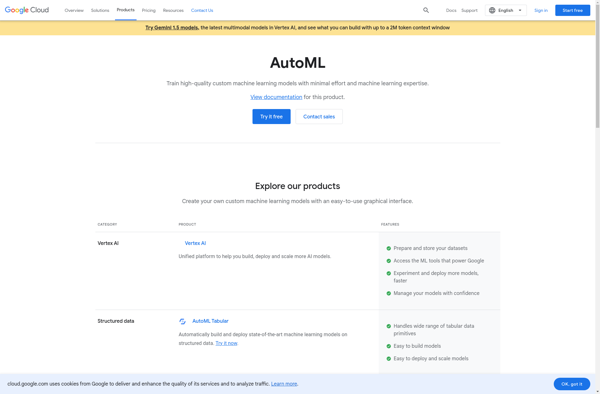Mlpack

mlpack: Open-Source C++ Machine Learning Library
An open-source C++ machine learning library prioritizing scalability, speed, and ease-of-use, providing a range of algorithms for classification, regression, clustering, dimensionality reduction, and more.
What is Mlpack?
mlpack is an open-source C++ machine learning library with an emphasis on scalability, speed, and ease-of-use. Some key features of mlpack include:
- Implementation of a wide range of machine learning algorithms, including classification, regression, clustering, dimensionality reduction, and more
- GPU and distributed frameworks for faster training and prediction
- Modular design allowing easy integration into new and existing systems
- Support for Linux, Mac, and Windows for easy development
- C++ APIs for seamless integration into C++ applications
- Python bindings for faster prototyping and development
- Community of active developers and users in GitHub, online forums, and mailing lists for support
Overall, mlpack aims to make scalable machine learning accessible to both expert data scientists and newcomers alike. It's well-suited for developing faster machine learning systems or integrating efficient ML components into applications and products. As an open-source project, mlpack welcomes and encourages contributions from anyone in the form of code, documentation, use cases, or feedback.
Mlpack Features
Features
- Scalable machine learning algorithms
- Classification, regression, clustering, dimensionality reduction
- Tree-based models like random forests
- Neural network models like multilayer perceptrons
- Support vector machines
- K-means and DBSCAN clustering
- Principal components analysis
- Flexible data representation for dense and sparse datasets
Pricing
- Open Source
Pros
Cons
Official Links
Reviews & Ratings
Login to ReviewThe Best Mlpack Alternatives
Top Ai Tools & Services and Machine Learning Libraries and other similar apps like Mlpack
Here are some alternatives to Mlpack:
Suggest an alternative ❐Deeplearning4j

TensorFlow

Cloud AutoML

Training Mule
The Microsoft Cognitive Toolkit
